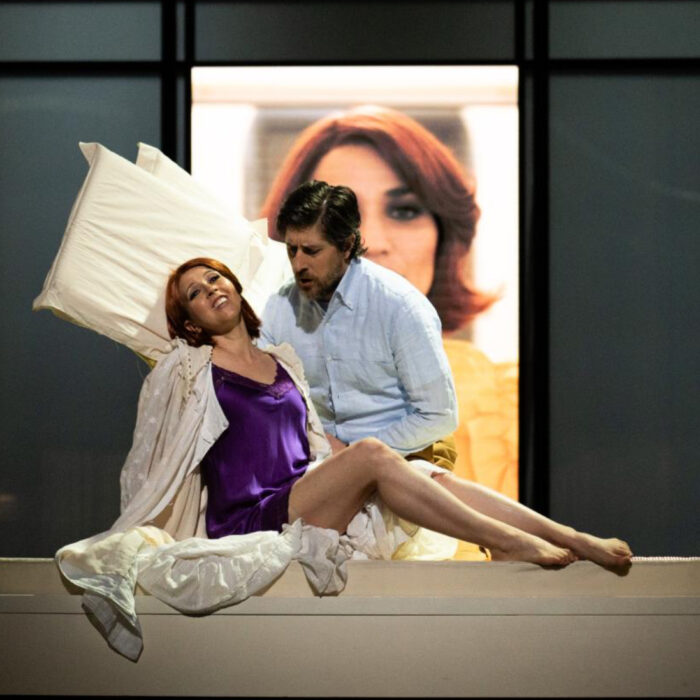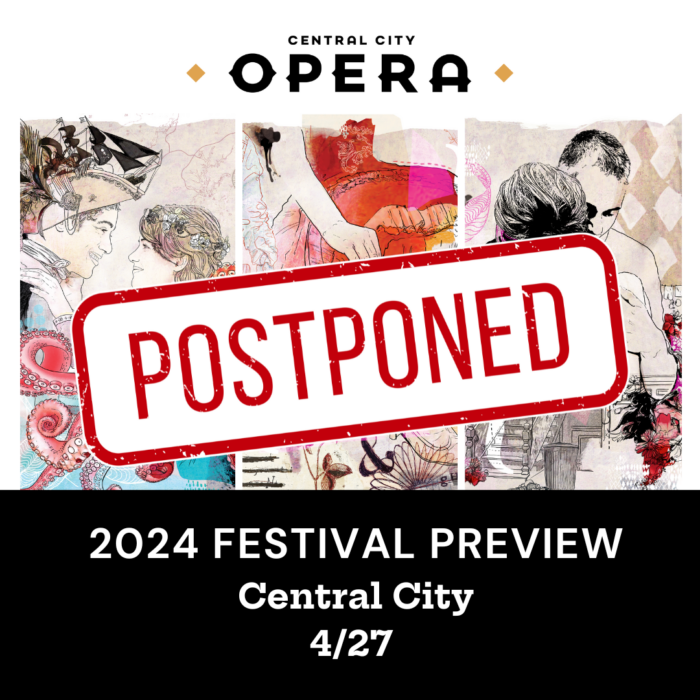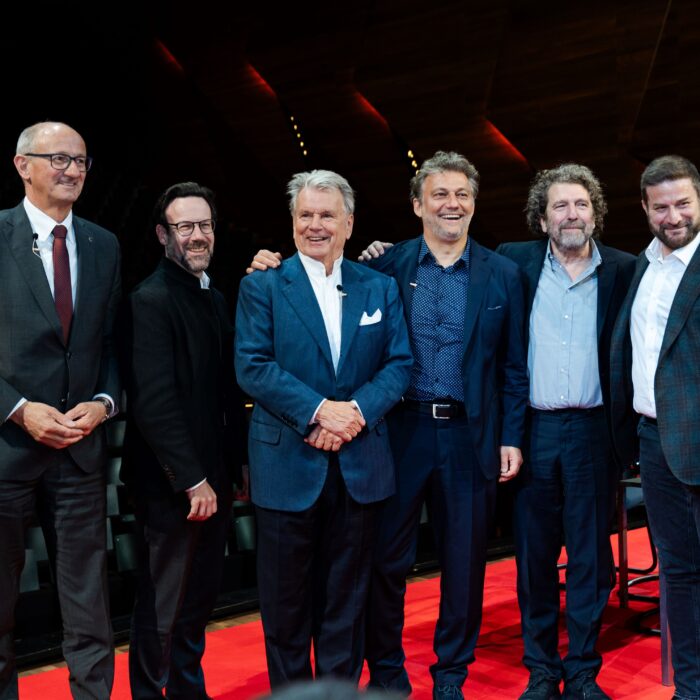
Royal Opera House Muscat Opens with Historical Production by Franco Zeffirelli
Giuliana Gianfaldoni & Dmitry Korchak Talk About Historical Production & the Importance of Live Theater
By Francisco SalazarTo celebrate its 10th anniversary, the Royal Opera House Muscat recently opened its 2022 season with a historical production of “Rigoletto.”
The version of the Verdi opera marks the final production that legendary director Franco Zeffirelli created for the opera stage before his death in 2019. It’s also a historical occasion because it marks the first time that audiences in Muscat are seeing the opera.
“The people had not heard ‘Rigoletto’ before. It was the first time and it was fantastic,” noted soprano Giuliana Gianfaldoni who is singing the role of Gilda in the production, while making her house debut. “I can be myself as Gilda and they said that the audience from the premiere is not always the most generous. But I think we had success and they appreciated it. To sing Gilda, this a very big role, I was very concentrated and since they don’t know the opera, I thought about what I could give to them. I tried to be in my character and I think that is why the public reacted.”
“I am happy that we can perform for the public that does not know the history of this music. We are happy to show them what is our culture and it is important for us,” added Dmitry Korchak, who is singing the Duke of Mantua.
For Omani audiences, it will also be a unique occasion to see the opera in its original time period and in traditional costumes. As opera shifts away from the traditional to new more modern productions, this new staging by Zeffirelli brings audiences back to the grandiosity of live opera.
“For me, it’s an honor to be part of the final production by Zeffirelli. I have followed the project for many years and I also participated in the press conference in Rome. I have become emotionally attached to this production and during the press conference, there was a moment when the tears started coming down because I was thinking of all the amazing theater Zeffirelli gave to us. He was a great director and he respected the music,” said Gianfaldoni.
“This is a Zefirelli production. At the Bolshoi Theatre, we love these types of productions and if you see ‘Boris Godunov,’ it should have big churches and the Kremlin. This production (Rigoletto) is completely Zefirelli and I love it. I am not against Regietheater. I prefer that the stage director can read the music and understand the music and the voices. I also want them to understand that opera is not cinema or theater. It is different and a different type of direction. It is important to respect the music. I love traditional theater and I love modern. It does not matter. If I see the story and I can sing and the orchestra can play, then I am happy,” noted Korchak.
Gianfaldoni added that when singing it is important to have a director who understands singers because “our voice is an instrument and is connected to our body. It is difficult to sing in many positions. Opera is a spectacle to see but it is also one that is heard. It is the first thing that we do. We hear opera and that is why it is hard to make it cinematographic.”
Omani audiences are also returning to the opera after the pandemic which shuttered the theater for almost two years. However, under strict regulations, the theater is only permitting 50 percent of audiences creating an interesting environment for the singers.
“It’s strange because the theater was not full due to COVID-19. I sang many productions during COVID for streaming and it was horrible. I would not want to do it again because we live for the public. If we don’t feel the public, it is really sad and it is not complete. We cannot give a lot. And for opening it was strange,” the soprano added.
Korchak added, “I think we are musicians who are working for one or two people in the theater. It doesn’t matter how many people are in the theater. But at the same time, people thought we got used to performing for half the audience. We do not sing for the public, but without the public, it is impossible. There is an energy we need and this connection between the public and artists is very important. During COVID, in Russia, they put recordings of opera and theater on TV. I started watching but after ten minutes, I had to shut it off. There is no energy. Maybe you find good camera angles but the real voice and energy are not there.”
Despite the restrictions, Korchak and Gianfaldoni are excited to be back on stage for a live audience.
“I know that performing live, I will remember the moment or the phrase or the bar or the movement. I cannot find that on TV. Our work is not only working with the voice and character but to finding solutions when you work with the conductor or other singers. It is important to work with your colleagues and you can find different colors depending on who you work with. That is why we love live performances,” Korchak concluded.


